Designing textbooks as an open platform
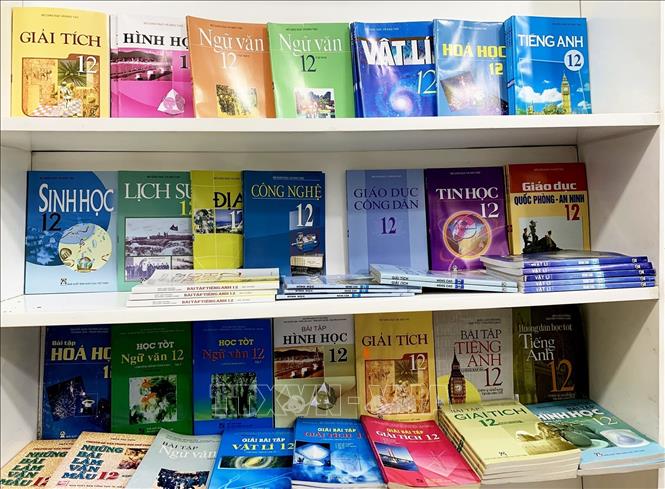
Dr. Ton Quang Cuong, Head of the Faculty of Educational Technology, University of Education - Vietnam National University, Hanoi, is particularly interested in the proposal to compile a set of common textbooks.
From the perspective of educational science and educational technology, Dr. Ton Quang Cuong assessed that the compilation of a common set of textbooks is a constructive policy. Instead of viewing the set of textbooks as a static, rigid block, it is necessary to design it as a "public and general knowledge platform", creating a knowledge "architecture" that is solid enough to serve as a foundation but also flexible enough to adapt.
Dr. Ton Quang Cuong believes that the Ministry of Education and Training needs to become a basis for quantitative testing and quality monitoring. Figuratively speaking, shared textbooks need to be designed as an open platform, where the "core" is the operating system and the "shell" is the applications. Each locality, each school, and even each teacher can choose the content that best suits their specific student groups, but all must run on the same knowledge operating system. "Compiling a unified set of textbooks is not about finding the lowest common denominator, but about determining the highest common denominator in terms of student capacity, values, development, and related social impacts," Dr. Ton Quang Cuong emphasized.
Dr. Ton Quang Cuong stated that there are two main issues that need to be met to ensure that the common textbooks not only meet the content requirements but are also practical, easy to apply and suitable for modern educational trends. Accordingly, the content in the books should be designed as the initial “input data” of a smart, effective, quality process of teachers and students; with a constructive, interdisciplinary, inter-subject and multimedia nature.
In addition, the practical connection according to the technological approach of textbooks will promote the shift in thinking from implementing teaching methods to designing learning experiences, increasing students' autonomy. At that time, textbooks almost have the attribute of being a "starter tool" for practical, specific activities of the learning process in and out of school. Therefore, textbooks must be the embodiment of the latest educational technology products.
Regarding the roadmap for implementing the common textbook set, according to Dr. Ton Quang Cuong, the Ministry of Education and Training needs to have broad consultation from education experts, teachers, parents as well as other interested social forces.
In the first stage, the Ministry needs to research and develop a curriculum framework; establish a professional council consisting of leading scientists and educators to develop a curriculum framework and criteria and standards for compiling textbooks. After having a curriculum framework, proceed to compile experimental textbooks by score and area for a number of schools to evaluate the effectiveness and suitability.
Based on the results of the testing, the books are revised and finalized. The Ministry then issues the official textbooks in print and digital formats, on an open, integrated and interactive platform, providing training materials for teachers nationwide.
Comprehensive restructuring with digital technology and AI
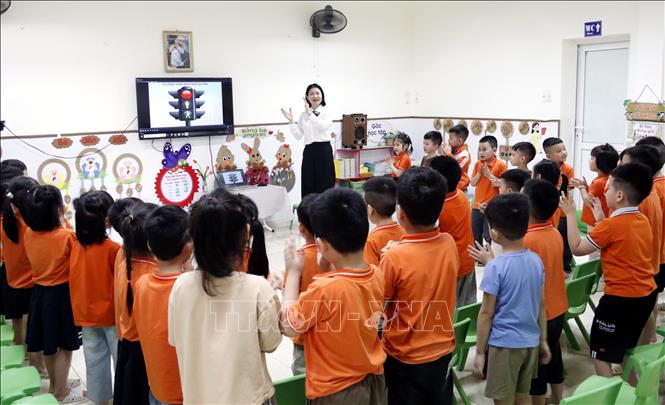
As the Training Director of the Blockchain Technology and Artificial Intelligence Institute (ABAII - Vietnam Blockchain and Digital Asset Association), Mr. Do Nhu Lam assessed that the task of comprehensive digital transformation, popularization and strong application of digital technology and artificial intelligence (AI) in education and training is the revolutionary highlight of Resolution No. 71-NQ/TW. This content shows that Vietnamese education does not only stop at innovating methods but also aims for comprehensive restructuring with digital technology and artificial intelligence.
According to Mr. Do Nhu Lam, at the macro level, this is the way for Vietnamese education to catch up with world trends, build a smart learning environment, personalize learners and ensure fair learning opportunities, especially helping the young generation of Vietnam to have digital skills, foreign languages and technological capacity to integrate into the global labor market.
Regarding digital transformation and AI application, the Resolution sets out the task of building a data strategy, a smart national education platform, innovating teaching and learning methods, testing and assessment; at the same time, requiring the universalization of digital and AI capacity for students and teachers. The Resolution emphasizes the goal of turning universities into centers of research, innovation and entrepreneurship. “Integrating big data, AI and entrepreneurship into training programs will help form a highly qualified workforce to meet the country's development requirements,” said Mr. Do Nhu Lam.
For the Institute of Blockchain Technology and Artificial Intelligence, this task creates favorable conditions for the Institute to deploy its inherent strengths. Programs to popularize blockchain and AI knowledge for the community, train specialized skills for students and IT experts, or support businesses in applying technology to production and business all directly contribute to realizing the requirements of the Resolution. The Resolution emphasizes the application of AI in teaching and learning English, the Institute has the opportunity to expand research, develop technology solutions to support teachers and students, and accompany the education sector in the process of national digital transformation.
Mr. Do Nhu Lam shared that Resolution 71-NQ/TW has a positive and direct impact on the activities of the Institute of Blockchain Technology and Artificial Intelligence because the Resolution both affirms the importance of digital technology and opens up many new development opportunities.
The Resolution emphasizes the task of "comprehensive digital transformation, strong application of artificial intelligence in education" will create a legal corridor and great social demand for the Institute to expand its training scale. This is an orientation that is completely consistent with ABAII's goal of popularizing blockchain and AI knowledge to Vietnamese people through specialized training programs. The policy prioritizes the development of high-quality human resources in strategic science and technology fields that are directly relevant to the Institute's specialized training courses such as: Blockchain Development, Machine Learning, Natural Language Processing, Computer Vision. Along with that, the Resolution emphasizes the State-school-enterprise cooperation model as well as strengthening international links, creating opportunities for the Institute to promote the fields of consulting, research and solution transfer to businesses in the digital transformation journey.
Source: https://baotintuc.vn/giao-duc/nghi-quyet-so-71-chuan-bi-nguon-nhan-luc-cho-muc-tieu-phat-trien-dat-nuoc-trong-ky-nguyen-moi-20251007114750261.htm




![[Photo] Super harvest moon shines brightly on Mid-Autumn Festival night around the world](https://vphoto.vietnam.vn/thumb/1200x675/vietnam/resource/IMAGE/2025/10/07/1759816565798_1759814567021-jpg.webp)




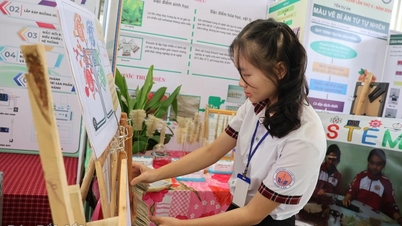




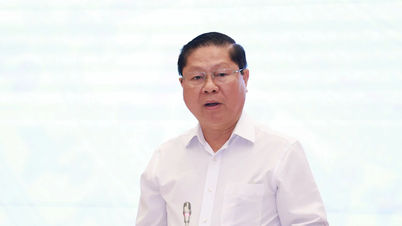

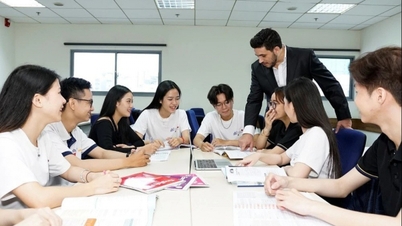
















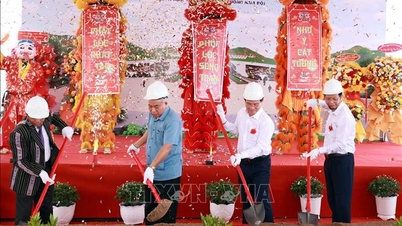

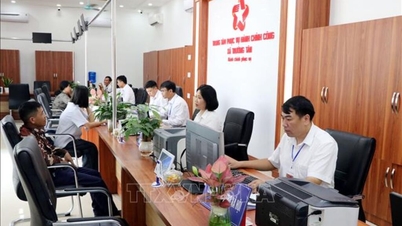

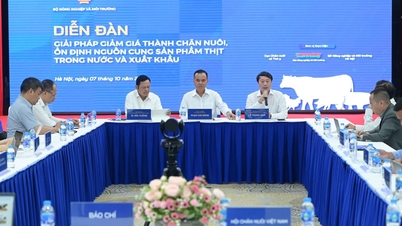



























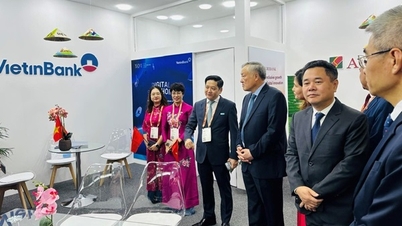
















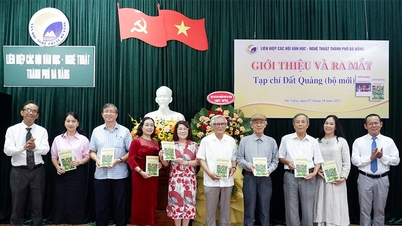
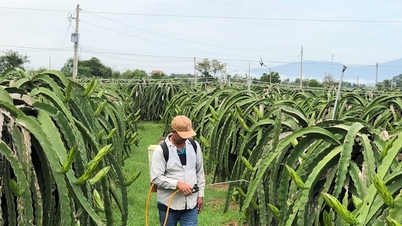



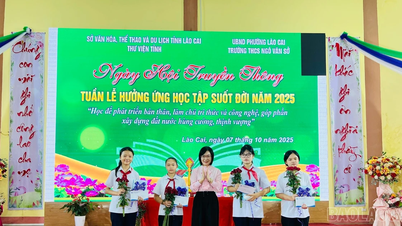
















Comment (0)